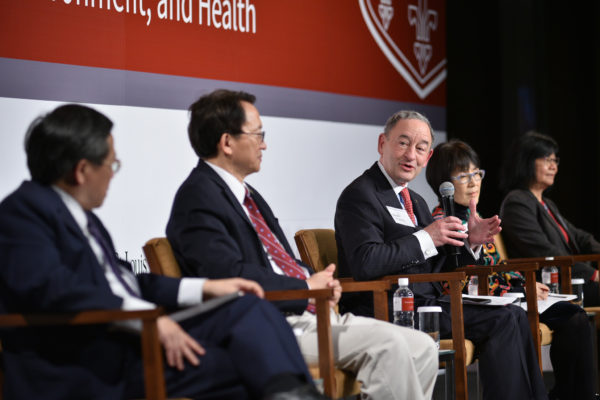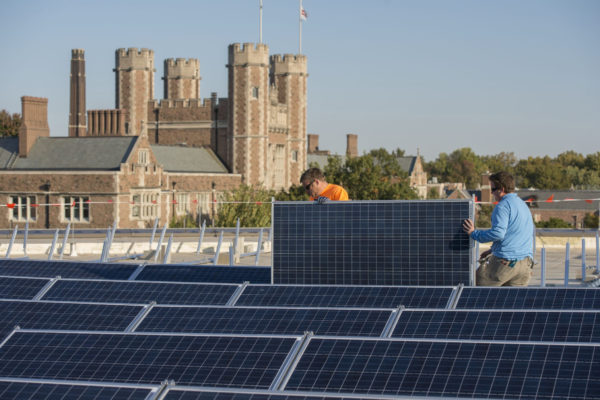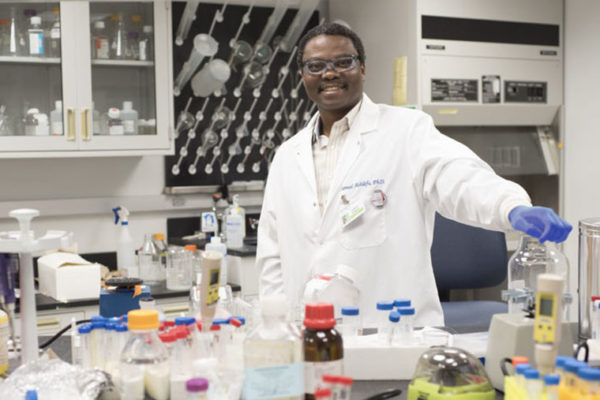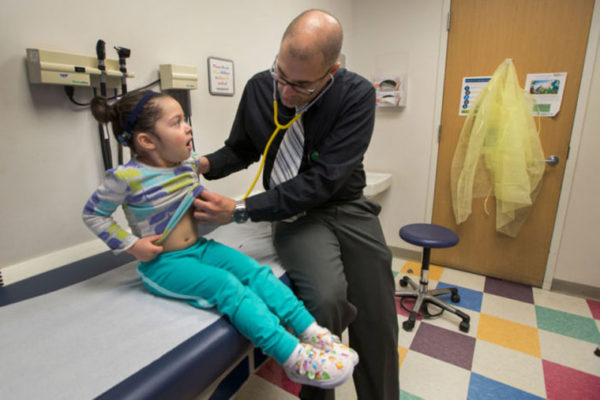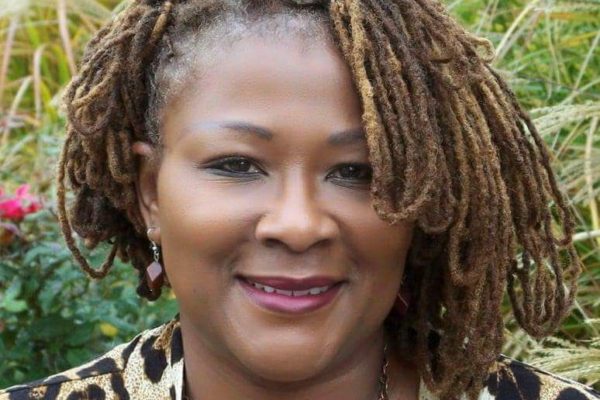Global collaborations, holistic solutions
In an effort to boost conversation and collaborative options regarding energy choices and their many impacts, Washington University in St. Louis recently held two international forums to address the challenges. The forums also allowed the university to interface with its McDonnell Academy partner institutions.
WashU Expert: Solar panel tariffs could cost Americans money, jobs
The solar development industry in Missouri is likely to take a particularly hard hit as a result of a recently announced import tariff on solar cells and panels, according to Phil Valko, assistant vice chancellor for sustainability at Washington University in St. Louis.
New molecular muscle responds to visible light
Researchers have created a novel polymer that changes color and contracts when exposed to visible light. The tiny, makeshift muscle does some heavy lifting — relatively speaking.
WashU Expert: If you see signs of child abuse, report it
David and Louise Turpin have been accused of abusing their 13 children for years inside their California home, a case that has captured international attention. What should you do to try to better recognize signs of abuse in your neighborhood? The bottom line: If you think a child is in danger or is being hurt, call a hotline, says a child abuse expert at Washington University in St. Louis.
Light as a weapon against metastatic cancer
The School of Medicine’s Samuel Achilefu and colleagues are working to develop a novel cancer therapy that uses light against tumors that have spread.
Genetic lung disease’s molecular roots identified
Using cells from children diagnosed with primary ciliary dyskinesia, a genetic lung disease, School of Medicine researchers have figured out how mutations disrupt the clearing of the airways.
Financial expert David Wessel to speak Jan. 31
The spring 2018 Assembly Series programs will run the gamut from national economic policy to the Book of Revelation. Fiscal policy expert David Wessel will lead off with a Jan. 31 lecture examining the economic landscape a year into the Trump presidency.
Joining forces to stop cycle of violence in St. Louis
The Institute for Public Health at Washington University in St. Louis will launch the regional St. Louis Area Hospital-Based Violence Intervention Program, which will aim to promote positive alternatives to violence, thanks to a $1.6 million grant from Missouri Foundation for Health.
Katia and Marielle Labèque in concert Jan. 28
Sibling pianists Katia and Marielle Labèque — praised by The New York Times as “the best piano duet in front of an audience today” — will perform four-hand works by Igor Stravinsky, Philip Glass and Bryce Dessner (known to many as guitarist for The National) Jan. 28 as part of the Great Artists Series at Washington University in St. Louis.
Williams appointed director of TRiO Student Support Services
Teresa Williams has been appointed director of TRiO Student Support Services at Washington University in St. Louis. TRiO is a federally funded program that provides supplementary financial support and academic coaching for students who are low-income, the first in their families to attend college or have a physical or learning disability.
View More Stories
